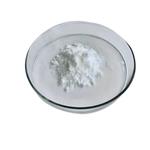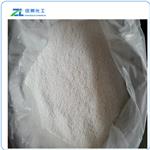Potassium Sorbate: A Comprehensive Insight into its Synthesis, Composition, Applications, Toxicity, and Safety Precautions
May 9,2024
Introduction
Potassium sorbate stands as a ubiquitous presence in contemporary industrial landscapes, revered for its ubiquitous utility spanning a plethora of sectors. Its pervasive usage has cemented its status as an indispensable component, drawing significant attention to its diverse applications and inherent safety considerations. Symbolized by the chemical formula C6H7KO2, potassium sorbate embodies a potent preservative prowess, wielding remarkable efficacy in curbing the rampant growth of molds, yeasts, and fungi. This attribute renders it a stalwart guardian of product integrity and longevity across an expansive spectrum of food and beverage formulations.
Beyond its fundamental role in food preservation, potassium sorbate permeates an array of industries with its versatile functionality. From the culinary domain encompassing beverages, dairy products, baked goods, sauces, and confectionery items to the realms of personal care products, pharmaceuticals, and industrial applications, its utility transcends boundaries. Embraced for its preservative efficacy, potassium sorbate lends stability and longevity to an extensive array of consumer goods and industrial formulations[1].

Figure 1 Characteristics of Potassium sorbate
Synthesis
The synthesis of potassium sorbate entails a meticulously controlled chemical process, commencing with the neutralization reaction between sorbic acid and potassium hydroxide. This intricate interplay yields potassium sorbate as the principal output, accompanied by the formation of water as a secondary byproduct. The precision of this synthesis process is paramount, as it ensures the attainment of potassium sorbate in its highest purity and efficacy. Stringent adherence to controlled conditions guarantees the consistency and reliability of the final product, thereby underpinning its suitability for diverse industrial applications.
Composition
Potassium sorbate, from a compositional standpoint, is defined by the presence of potassium ions and sorbate ions. Its molecular formula, C6H7KO2, succinctly delineates its chemical makeup, comprising six carbon atoms, seven hydrogen atoms, one potassium atom, and two oxygen atoms. This molecular configuration imparts water solubility to potassium sorbate, a pivotal attribute that facilitates its dispersion and efficacy as a preservative agent. Moreover, the unique arrangement of atoms within its molecular structure endows potassium sorbate with its potent preservative properties, enabling it to effectively combat microbial proliferation and sustain product quality across a diverse spectrum of applications.
Applications
The applications of potassium sorbate extend far beyond the realm of food preservation, permeating a myriad of industries with its versatile functionality. In the culinary domain, it serves as an indispensable ingredient in the production of beverages, dairy products, baked goods, sauces, and confectionery items, where it acts as a stalwart guardian against microbial spoilage, thereby ensuring the longevity and integrity of these consumables. Furthermore, its preservative prowess transcends the culinary sphere, finding resonance in the formulation of personal care products, pharmaceutical preparations, and various industrial applications. From cosmetics and skincare formulations to medicinal syrups and industrial coatings, potassium sorbate's preservative efficacy imparts stability and longevity to an extensive array of products, underscoring its indispensability in modern manufacturing practices[2].
Toxicity
While regulatory bodies have bestowed upon potassium sorbate the generally recognized as safe (GRAS) status within prescribed thresholds, vigilance against excessive consumption remains paramount. Instances of adverse health effects, though infrequent, have been reported among individuals with heightened sensitivity to its constituents. Furthermore, prolonged exposure to elevated concentrations of potassium sorbate may provoke skin and ocular irritation, underscoring the importance of prudent usage and adherence to recommended safety guidelines. As such, a judicious approach to its utilization is imperative to mitigate potential health risks and ensure the well-being of consumers and workers alike.
Safety Precautions
To ensure safe handling and usage, it is imperative to adhere to recommended guidelines and regulations governing the use of potassium sorbate. Protective equipment such as gloves, goggles, and masks should be worn when handling concentrated solutions. Furthermore, proper ventilation in manufacturing facilities and adherence to prescribed dosages in formulations are essential to mitigate potential risks.
References
[1]Dehghan P, Mohammadi A, Mohammadzadeh-Aghdash H, et al. Pharmacokinetic and toxicological aspects of potassium sorbate food additive and its constituents[J]. Trends in Food Science & Technology, 2018, 80: 123-130.
[2]Stanojevic D, Comic L J, Stefanovic O, et al. Antimicrobial effects of sodium benzoate, sodium nitrite, and potassium sorbate and their synergistic action in vitro[J]. Bulgarian Journal of Agricultural Science, 2009, 15(4): 307-311.
- Related articles
- Related Qustion
- Potassium Sorbate: Versatile and Effective Food Preservative with Alkylating Potential Jan 5, 2024
Potassium sorbate is a commonly used food preservative with low toxicity and high solubility and exhibits alkylating potential, but further research is needed on its implications for human health.
- Potassium sorbate: Chemical synthesis, application, and toxicity Mar 15, 2023
The potassium sorbate, a white to light yellow crystals, has antiseptic and antibacterial activities with non-toxic to human body when used at common concentrations.
Potassium sorbate
24634-61-5You may like
Potassium sorbate manufacturers
- Potassium sorbate
-

- $20.00 / 1kg
- 2024-05-30
- CAS:24634-61-5
- Min. Order: 1kg
- Purity: 99%
- Supply Ability: 1000 tons/month
- Potassium sorbate
-

- $18.00 / 10KG
- 2024-05-08
- CAS:24634-61-5
- Min. Order: 1KG
- Purity: 99.9
- Supply Ability: 5000
- Potassium Sorbate
-

- $120.00 / 1kg
- 2024-05-08
- CAS:24634-61-5
- Min. Order: 1kg
- Purity: 99%
- Supply Ability: 20ton




